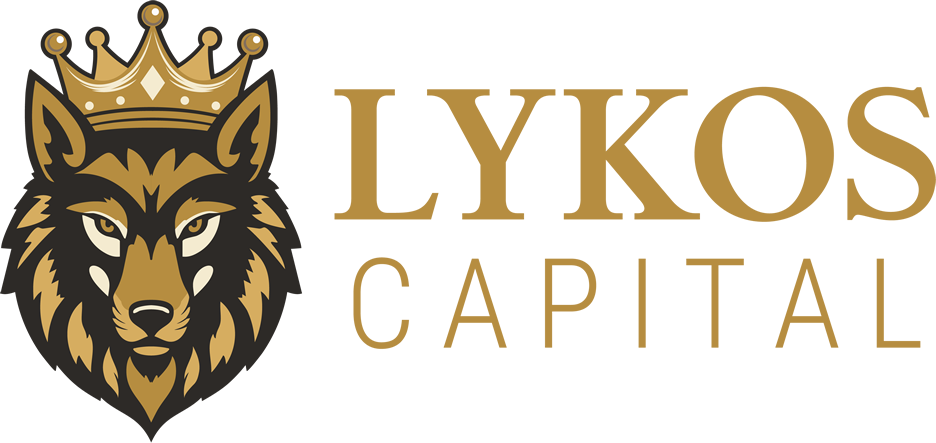Those who stay still get left behind. The job market is evolving rapidly due to technological advances, shifting market needs, and the rise of remote and hybrid work. As a result, professionals across industries are increasingly investing in training and development workshops to enhance their skills, adapt to changes, and stay competitive.
Upskilling doesn’t just make you more effective in your current role—it prepares you for new challenges, leadership opportunities, and career growth. Whether you’re looking to strengthen your technical capabilities or refine your soft skills, the right training can make all the difference.
This article highlights seven impactful workshops that combine both hard and soft skills to help you grow professionally, improve performance, and stay primed for leadership roles.
1. Communication and Interpersonal Skills Training
Best for: All professionals, especially team leads, managers, and client-facing roles.
Clear, confident communication is a cornerstone of professional success. Whether you’re presenting to a boardroom, leading a team meeting, or drafting client emails, the ability to express yourself effectively can elevate your impact.
Communication workshops typically focus on:
- Verbal and non-verbal communication
- Active listening techniques
- Conflict resolution
- Public speaking and presentation skills
- Emotional intelligence in professional settings
These workshops often include role-playing scenarios, real-time feedback, and practical exercises designed to improve clarity and confidence. Improving your communication style doesn’t just help you speak better—it helps you connect, lead, and collaborate more effectively.
Upskilling in this area ensures you’re not just heard but truly understood—a crucial element of effective leadership.
2. Data Analysis and Visualization
Best for: Analysts, marketers, operations professionals, and decision-makers.
In nearly every industry, data is king. But raw data on its own isn’t useful—it needs to be interpreted and communicated clearly. That’s why training in data analysis and visualization is one of the most in-demand training and development programs today.
These workshops often cover:
- Data literacy and fundamentals
- Tools like Excel, Tableau, Power BI, or Google Data Studio
- How to clean, organize, and interpret data sets
- Creating dashboards and visual reports
- Making data-driven decisions
Data fluency empowers professionals to extract insights, back up their ideas with evidence, and contribute to strategic decision-making. Whether you’re in marketing, finance, HR, or product management, the ability to work with data makes you more agile, valuable, and future-ready.
3. Time Management and Productivity Optimization
Best for: Anyone juggling multiple responsibilities, especially remote or hybrid workers.
Time is a limited resource, and how you manage it can dramatically affect your output and mental well-being. This type of workshop helps professionals build habits and strategies that allow them to work smarter, not harder.
What you’ll learn:
- Prioritization frameworks (like the Eisenhower Matrix or Pareto Principle)
- Task and project management systems (e.g., Kanban, time-blocking)
- Reducing procrastination and distractions
- Email and calendar management
- Balancing deep work with collaboration
Time management workshops are often interactive and tailored to each participant’s role and work environment. The goal is to help professionals identify their productivity blockers and implement personalized systems for peak performance.
In a world that constantly demands more, mastering your time is one of the most powerful ways to get ahead.
4. Leadership and Management Workshops
Best for: Emerging leaders, team supervisors, and professionals preparing for promotions.
Leadership isn’t about a job title—it’s about influence, vision, and the ability to inspire others. That’s why leadership training is a critical investment for anyone who aspires to guide teams or drive organizational success.
These workshops typically include:
- Leadership styles and when to use them
- Motivating and managing teams
- Decision-making under pressure
- Managing up and across organizations
- Feedback and performance evaluation
Leadership development isn’t reserved for executives—early and mid-career professionals can benefit greatly from these skills. Building leadership muscle early prepares you to step into higher-level roles with confidence.
More than just “management,” leadership workshops teach how to foster trust, empower others, and lead with clarity. They’re ideal for anyone aiming to take on more responsibility in the near future.
5. Digital Literacy and Tech Skills
Best for: Professionals across all departments and industries.
Technology continues to reshape the way we work. Regardless of your field, understanding the tools that power digital workspaces is no longer optional—it’s essential.
Popular topics covered in these workshops include:
- Cloud-based collaboration (e.g., Google Workspace, Microsoft 365)
- Workflow automation (e.g., Zapier, Asana, Notion)
- Cybersecurity basics for professionals
- Remote work best practices
- Intro to programming and no-code platforms
Whether updating your digital toolkit or diving into technical skills like basic coding, these training and development workshops provide the foundation needed to stay relevant in the modern workplace.
Being tech-savvy improves your agility, reduces dependency on IT teams, and positions you as someone who adapts well to innovation.
6. Critical Thinking and Problem-Solving Skills
Best for: Professionals involved in strategy, planning, or complex decision-making.
In a world filled with ambiguity and information overload, critical thinking is more important than ever. This workshop helps participants sharpen their analytical thinking, improve judgment, and tackle complex problems with clarity.
What you’ll explore:
- Root cause analysis (e.g., the 5 Whys, Fishbone diagrams)
- Structured problem-solving frameworks (e.g., McKinsey’s issue tree)
- Evaluating evidence and assumptions
- Scenario planning
- Innovation and creative thinking techniques
These workshops are often discussion-driven, using real-world case studies and group exercises to stretch mental muscles. They’re especially valuable for managers, analysts, consultants, and entrepreneurs who deal with constant decision-making.
Critical thinking isn’t just a skill—it’s a mindset. Cultivating it helps professionals stand out as thoughtful, strategic contributors.
7. Diversity, Equity, and Inclusion (DEI) Training
Best for: Everyone, particularly team leaders, HR professionals, and decision-makers.
Workplaces today are more diverse than ever—and that’s a good thing. But inclusion doesn’t happen by accident. DEI training equips professionals with the understanding, language, and tools to foster more equitable environments.
Topics usually include:
- Unconscious bias and microaggressions
- Inclusive communication and hiring practices
- Building cultural competency
- Allyship and advocacy
- Creating inclusive teams and company cultures
This kind of professional development goes beyond compliance—it’s about creating spaces where everyone feels respected, heard, and empowered to contribute fully. DEI workshops not only help build healthier teams but also improve performance, innovation, and retention.
Investing in DEI is a statement: your company values fairness, empathy, and long-term progress.
Making the Most of Your Upskilling Journey
Now that you’ve explored seven powerful types of training and development workshops, the next step is identifying which areas align best with your goals.
Here’s how to decide where to focus:
- Assess your current role and responsibilities. Where do you feel strong? Where are the gaps?
- Think about where you want to be in 1–3 years. Are you eyeing a leadership role, switching industries, or launching a side hustle?
- Ask for feedback. Talk to your manager, mentor, or trusted colleague. They may see blind spots or strengths you haven’t noticed.
- Align with your company’s goals. Many employers are happy to invest in learning that enhances team performance—some may even cover the cost.
- Be proactive. Upskilling is your responsibility. Don’t wait for someone else to tell you what to learn.
Remember, growth doesn’t happen all at once. Consistent learning—even in small doses—adds up to big career gains over time.
Final Thoughts
In a world where industries and job requirements evolve almost overnight, staying relevant means staying proactive. Whether you’re refining soft skills like communication and leadership or embracing hard skills like data analysis and digital fluency, investing in yourself is always a smart move.
These training and development programs don’t just help you work better—they help you lead better, think sharper, and build a career that’s resilient, adaptable, and fulfilling.
The great thing about upskilling today is how accessible and flexible learning has become. You no longer have to pause your career or invest in a full-time degree to gain valuable, career-enhancing knowledge. Online platforms like Coursera, LinkedIn Learning, edX, and Udemy offer high-quality, affordable courses from top institutions. You can even find virtual boot camps, short certifications, or intensive weekend workshops that deliver real-world skills in a condensed timeframe.
Additionally, many companies recognize the long-term ROI of employee growth and allocate budgets specifically for training and development workshops. If your organization offers a learning stipend or tuition reimbursement, take advantage of it. Even if they don’t, proposing relevant workshops that align with your job goals and team performance may be met with support—especially if you tie it back to organizational growth.
Upskilling isn’t just about getting better at what you already do. It’s also about opening doors to new roles, industries, or leadership paths you may not have previously considered. A single workshop could be the catalyst for a career pivot or promotion.
So don’t wait for permission or the perfect time. Growth rarely happens in comfort zones. By prioritizing your development, you’re not only increasing your value—you’re setting yourself apart as someone who’s ready for what’s next.
Upskilling isn’t a luxury. It’s a necessity. And it starts with one simple step: commit to learning.LYKOS Capital provides a wide range of marketing and management services designed to help you attract new clients, strengthen customer relationships, and promote business growth. We specialize in direct marketing strategies that deliver personalized messages and drive customer engagement. Contact us to learn more about our marketing and business strategy services.

